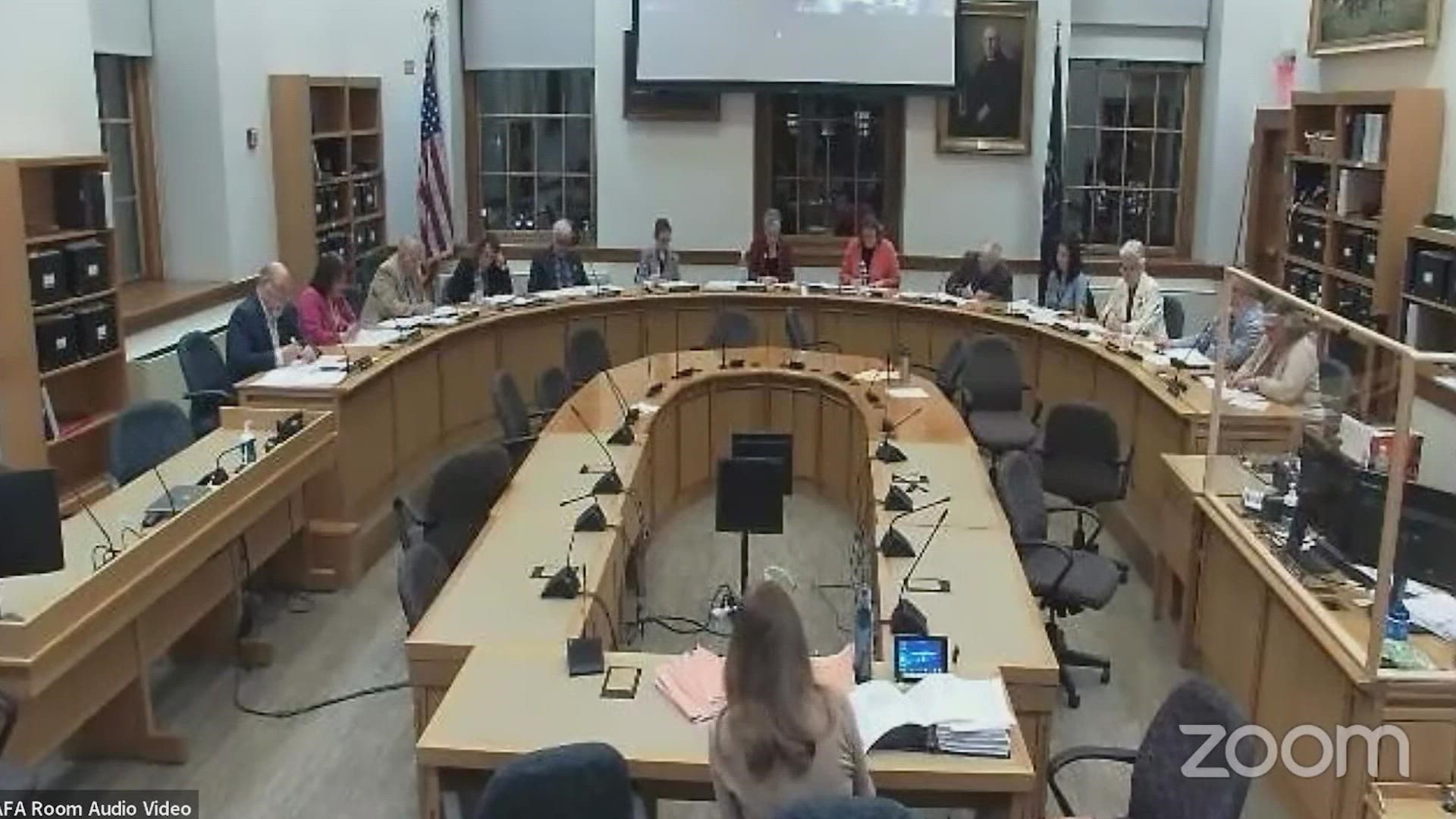AUGUSTA, Maine — A bipartisan budget committee unanimously approved Maine's supplemental budget early Friday morning in a move that brings $850 relief checks for more than half of Mainers one step closer to reality.
Democrats estimate more than 850,000 people in Maine would be eligible for a COVID-19/inflation relief check, which Republicans insisted the state create because of the surplus budget.
To be eligible, people must file a tax return by October 31, 2022, even if they normally do not file taxes. A person's eligibility depends on how they file taxes. Here are the income limits:
- Single or married, filing separately: up to $100,000
- Head of household: up to $150,000
- Filing jointly: up to $200,000
Included in the budget are plans to lower the cost of college in Maine. All students who graduate from high school from 2020 to 2023 would get two free years of Maine community college if they enroll full-time. Also included is a tuition freeze at all University of Maine System schools; an increase in the the Opportunity Maine Tax Credit; and an increase in the the maximum annual individual benefit from $2,000 to $2,500, up to a $25,000 lifetime benefit.
Democrats believe the unanimous support from the Appropriations Committee bodes well for the bill's passage in the Maine House and Senate. Republicans would not go as far, saying that the text of the supplemental budget is not available to anyone but the budget committee.
NEWS CENTER Maine asked for a copy of the supplemental budget. A spokesperson for Senate President Troy Jackson, D-Allagash, said it is not available yet.
"[I]t will take nonpartisan staff some time to put together the amended language. We won’t vote until we have the amendment," Christine Kirby wrote in an e-mail.
NEWS CENTER Maine reached out to Sen. Paul Davis of Sangerville, a Republican on the Appropriations Committee, and Minority Leader Rep. Kathleen Dillingham. R-Oxford. Neither immediately returned requests for comment.
In a statement, Scott Ogden, a spokesperson for Gov. Janet Mills wrote:
"The Governor is pleased with the Appropriations Committee’s unanimous support of the budget proposal, which would deliver relief from high costs to Maine people and advance other important priorities like tax relief, free community college for pandemic-impacted students, PFAS support, and a pay raise for child care workers, among others. The Governor will continue to follow the budget as it makes its way through the House and Senate and is hopeful that both bodies will approve it with the strong bipartisan 2/3 vote needed to deliver relief quickly."
The Maine House and Senate still need to vote on the bill. If it receives two-thirds approval in each chamber, it would go to the governor's desk. Mills would have 10 days to take action on it. If she signs it, or does nothing, it would go into effect immediately.
If the bill does not receive a two-thirds vote, it could still pass with a simple majority. However, it would not go into effect until 90 days after the Legislature adjourns, which happens Wednesday.

